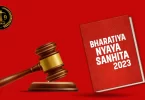Beneficial Contracts
The meaning of the proposition that an infant is incompetent to contract or that his contract is void is that the law will not enforce any contractual obligation of an infant. The decision in the Mohori Bibee case is confined to cases where a minor is charged with obligations and the other contracting party seeks to enforce those obligations against him. Accordingly, a minor is allowed to enforce a contract, which is of some benefit to him and under which he is required to bear no obligation. A minor will have the option of retiring from a beneficial contract on attaining majority.
The following are the instances of contracts beneficial to a minor:
(i) If a minor has advanced mortgage money and there is a mortgage in his favour, he can sue for enforcement of the contract.
(ii) Similarly, a minor can sue on a Promissory Note executed in his favour.
(iii) A contract for the marriage of a minor is also prima facie for his or her benefit. While the contract of marriage could be enforced against the other contracting party at the instance of the minor, it cannot be enforced against the minor.
(iv) A minor can also be supplied with “necessaries suited to his condition in life” (e.g. food, lodging, education) and the supplier of such necessaries is entitled to be reimbursed from the property of the minor.
(v) Trade contracts are not included in beneficial contracts.
In Raj Rani vs. Prem Adib, the father of Raj Rani, who was a minor, entered into a contract on her behalf with Prem Adib, a film producer. According to the contract, Raj Rani was to act as a film actress on payment of a certain amount. Raj Rani was not given any work. She sued the producer for the breach of contract. The Bombay High Court held that neither she nor her father could have sued on the promise. If it was a contract with the plaintiff, she being a minor, it was a nullity. If it was a contract with her father it was void for being without consideration.
A minor cannot be a partner in a partnership firm, but under Sec. 30 of the Indian Partnership Act, he can be admitted to the benefits of partnership. The minor shall not share losses except when liability to third parties has arisen but then too up to his share in the partnership assets; he cannot be made personally liable. Where a minor and an adult jointly enter into an agreement with another person, the minor has no liability but the contract as a whole can be enforced against the adult.
Q.1 In which of the following cases, a contract is not beneficial to a minor:
a. A contract for marriage of a minor
b. A mortgage in favor of a minor
c. A promissory executed in favor of a minor.
d. A trade contract.
Answer: d
Q.2. X, who is a minor, entered into a beneficial contract with Y. And X on attaining majority wants to exercise the option of retiring from the contract. Can X do it?
a. Yes
b. No
c. Maybe
d. None of the above
Answer: a
Q.3. X, who is the father of a singer Y (minor) entered into a contract with a music producer for recording backup vocals in a song. Y was to be paid for his work. Y was not given any work. X sued the producer. Will he succeed?
a. Yes, as this was a beneficial contract.
b. No, because it was a contract without any consideration
c. No, because contract with a minor is a nullity
d. None of the above
Answer: b
Q.4. Which of the following is not attributable to the passage above?
a. A minor is allowed to enforce a contract, which is of some benefit to him and under which he is required to bear no obligation.
b. Where a minor and an adult jointly enter into an agreement with another person, the minor has no liability but the contract as a whole can be enforced against the adult.
c. A minor can also be supplied with “necessaries suited to his condition in life” (e.g. food, lodging, education) and the supplier of such necessaries is not entitled to be reimbursed.
d. All of the above.
Answer: c





